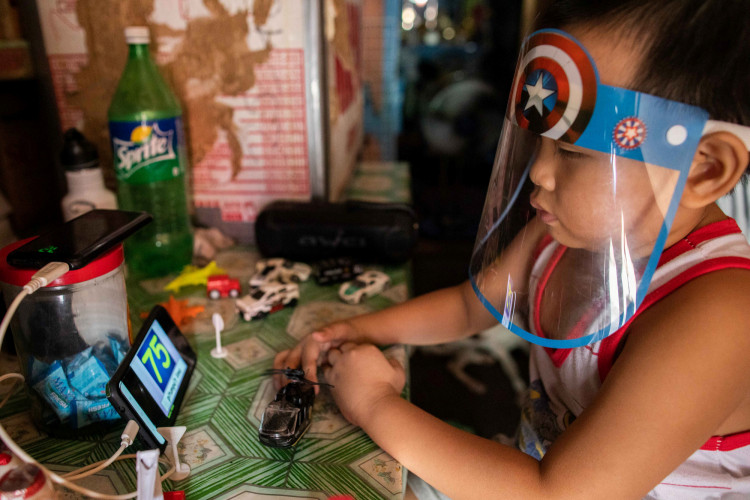UNICEF, the UN agency for children, has encouraged education authorities to reopen schools as quickly as possible in nations where millions of pupils have yet to return to school 18 months after the COVID-19 pandemic began.
According to a UNICEF report released on Thursday, schools in around 17 nations are closed completely, while those in 39 countries are partially closed.
"The education crisis is still here, and with each passing day that classrooms remain dark, the devastation worsens," UNICEF Executive Director Henrietta Fore said.
Schools in the Philippines, Bangladesh, Venezuela, Saudi Arabia, Panama, and Kuwait, which serve almost 77 million pupils, are among those "almost completely closed."
The Philippines, which is fighting one of Asia's worst COVID-19 outbreaks and where a new school year began this week, accounts for nearly a third of this figure.
According to UNICEF, students from the six countries account for more than half of the 131 million students who have missed more than three-quarters of their in-person learning.
Teachers, after health workers and those most at risk, should be given COVID-19 vaccines first, the report said, to protect them from community transmission.
Although students are safer at home, they continue to face challenges such as the lack of access to computers, mobile phones, and the Internet, as well as the uneven quality of education.
Some children in the Philippines have been forced to climb onto roofs in order to get an Internet signal.
President Rodrigo Duterte rejected a proposal in June to allow face-to-face education to resume in some places, saying he would "not gamble on the health of the children."
Duterte approved the pilot implementation of face-to-face classes in January in schools located in areas deemed low-risk for COVID-19 in mid-December of last year.
He did, however, cancel his order a few days later owing to the threat posed by the coronavirus variant originally detected in the U.K. and reported to be more contagious.
Duterte stopped face-to-face classes earlier this year, citing a lack of COVID-19 vaccines. Eventually, he permitted those enrolled in medical and health allied health programs offered by higher education institutions in general community quarantine (GCQ) and modified GCQ areas.
Basic education classes in the Philippines fall under blended learning, which combines virtual sessions, radio and TV broadcasts, and printed modules for self-learning.




